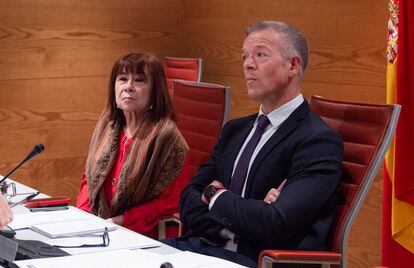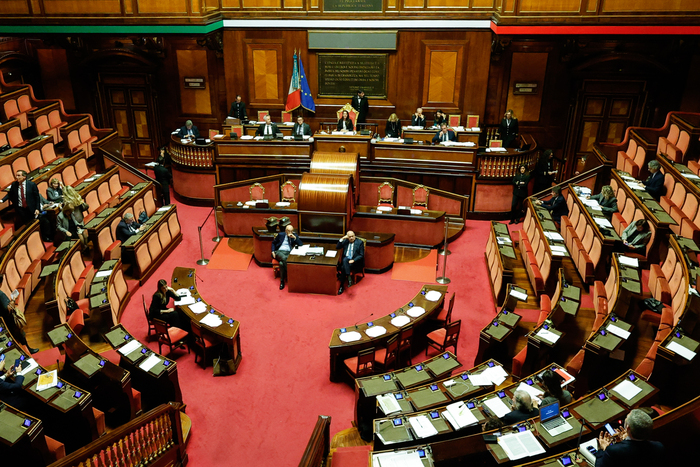The first vice president of the Senate, Cristina Narbona and the president of the Senate, Ander Gil, last December 20 in Madrid.Gustavo Valiente (Europa Press)
The Constitutional Court has begun to rethink its recent doctrine on the possibility of interfering in the work of Parliament. In its second ruling on the education law known as the Celáa law, approved in plenary this week, the court has endorsed the parliamentary procedure that followed said educational reform, an extreme that speaks was challenged by the PP with the argument that the groups allied with the Government had incurred in "an abusive exercise of the right of amendment".
This is a similar case to the one that last December meant that the court prohibited the vote on two amendments presented by the PSOE and Podemos in the debate on the reform of the Criminal Code. Now, in the sentence that rejects by seven votes against four the appeal of the PP against the Celáa law, the body of guarantees introduces considerations different from those formulated last December by the Constitutional Court itself – when it had a conservative majority – to stop the regular parliamentary processing of the law that suppressed sedition and modified embezzlement downwards.
In the latter case, the court considered potentially harmful to the rights of the PP deputies that in the proposed law to reform the Criminal Code two amendments were introduced aimed at speeding up the renewal of the Constitutional itself, blocked for six months. The appeal of the popular requested that a precautionary measure be adopted so that these amendments would not be voted, and the court agreed to prohibit the debate of such texts. The thesis of the PP was that if it was allowed to be discussed in the chambers, its parliamentarians would be deprived of the opportunity to oppose the changes that were going to be introduced in an initiative that had initially been presented to modify the criminal legislation, not to facilitate the unblocking of the Constitutional.
Now, however, when ruling on the appeal of the PP on the Celáa law, the court – currently with a progressive majority – has rejected the thesis that in the debate on educational reform there had been "an abusive exercise of the right of amendment". The challenge of the popular was based on this point in that some of the reforms of the Education Law "were introduced through amendments proposed by the parliamentary groups that support the Government." The appeal also stated that these groups sought in this way to change "substantially essential aspects of the law, when the amendments should be of a subsidiary or incidental nature".
This argument was also used last December to interfere in the work of Parliament by calling for the debate on the aforementioned amendments to the reform of the Criminal Code to be prevented. Now, however, the court has changed its view on the autonomy of Parliament, which leads it to emphasize that the right of amendment "integrates the core of the parliamentary representative function" and "corresponds to all deputies and groups without distinction and with identical content, without a limit to the amendments being inferred by their greater or lesser significance".
The magistrate Laura Díez has been the rapporteur of the sentence, which rejects all the reasons alleged by the PP for its appeal, also considers that the qualification of "own" for the co-official language of some autonomous communities does not imply violation of any constitutional principle. The ruling considers that the law uses the terms "co-official" and "own" in an "indistinct" way, and that it does so, in addition, in the sense of "peculiar, characteristic or exclusive of an autonomous community, unlike Spanish, which is the language shared by all".
Subscribe to continue reading
Read without limits
Read more
I'm already a subscriber









